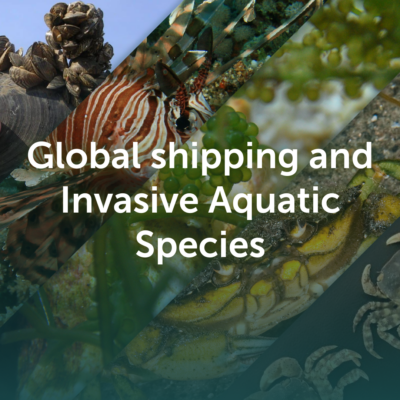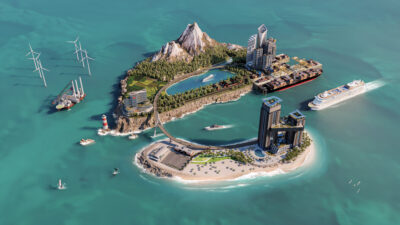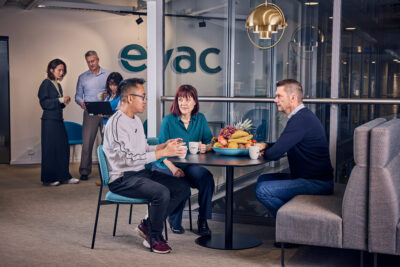TUI Cruises chose Evac HydroTreat for wet waste handling
“This is not just a ground-breaking innovation for the cruise-line industry but for waste management in general. It’s a game changer in the whole circular economy process,” says Georgios Vagiannis, Head of New Build at TUI Cruises.
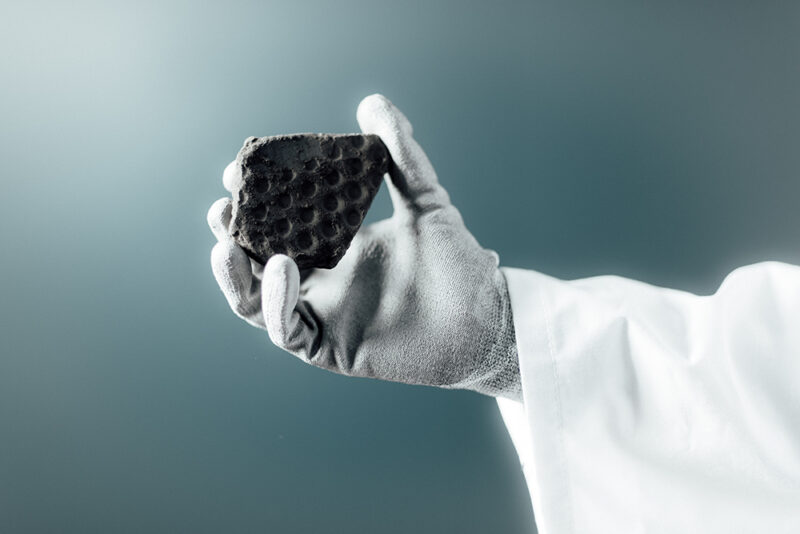
TUI Cruises is a significant player in the global cruise industry. With its fleet of 11 vessels, the cruise line carries approximately 700,000 passengers each year on some 380 cruises. TUI Cruises serves popular destinations around Europe, the Caribbean and the rest of the world with its Mein Schiff and Hapag-Lloyd Cruises (HLC) brands. HLC even offers cruises to Antarctica and the Arctic.
Since it was founded in 2008, the company has deliberately focused on the German market. Today, the vast majority of Mein Schiff’s passengers are German-speaking. They choose the cruise line for its generous square-metre ratio per passenger, premium experiences and focus on sustainability.
“When it comes to sustainability, Germany is the most demanding European market. We’ve made sustainable business a core value for TUI Cruises, and we are always trying to be at the forefront of circular-economy innovation. By 2030, we want to have reduced our absolute global CO2 emissions by 27% across all the TUI Group cruise brands,” says Georgios Vagiannis, Head of New Build at TUI Cruises.
This is the background against which TUI Cruises went looking for a better solution for handling organic wet waste aboard its vessels. Comprising both food waste and bio sludge, organic wet waste is notoriously problematic for cruise-line operators. It’s bulky, unpleasant and subject to strict disposal restrictions.
“It’s possible to recycle, burn or otherwise dispose of organic wet waste, but we wanted to find a solution that would help us to achieve our ambitious environmental targets. In 2018 we wrote an open letter to waste-technology suppliers asking them to put forward innovations for this task. This is how we settled on Evac HydroTreat,” explains Vagiannis.
From wet waste to sterile biochar
Evac HydroTreat uses a closed-loop hydrothermal carbonisation (HTC) process to break down organic wet waste into just sterile biochar and water. In a process akin to a pressure cooker, the organic wet waste is heated to 200 degrees Celsius until the cells break down into carbon and eventually form biochar as a stabile end product.
Unlike traditional methods of treating organic wet waste, HydroTreat generates no direct emissions. The compact design of the Evac HydroTreat system allows for easy installation in the waste-handling area of any ship.
“The main driver behind adopting this technology is that we wanted something circular. This is not just a ground-breaking innovation for the cruise-line industry, but for waste management in general,” says Vagiannis.
TUI Cruises is now installing the Evac’s system in three new Mein Schiff vessels, two of which are being constructed in Italy and one in Finland.
This is not just a ground-breaking innovation for the cruise industry, but for waste management in general.
Georgios Vagiannis, Head of New Build at TUI Cruises
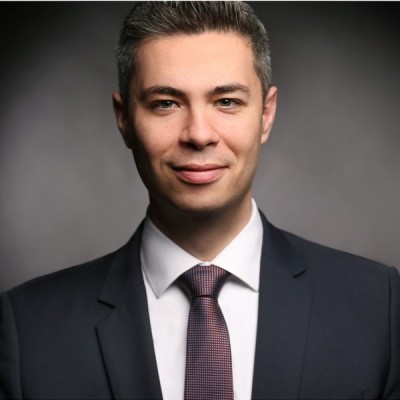
Landside circular benefits too
TUI Cruises and Evac began building their relationship many years ago with the implementation of various Evac technologies aboard TUI Cruises’ vessels. This work includes equipment for reverse osmosis; removing the salt from seawater so it can be used for passengers to shower with. TUI Cruises has also installed Evac vacuum toilets in crew cabins and passenger staterooms.
“Every vessel in the TUI Cruises fleet has some kind of equipment from Evac. We have a very good partnership. The company understood the necessity on our side and we’re on this sustainability journey together. Both TUI Cruises and Evac have invested a lot in HydroTreat,” explains Vagiannis.
In another boost for sustainability, the biochar produced by the HydroTreat process is rich in phosphorus and nitrogen – essential components for fertiliser. TUI Cruises is now working with port authorities in different countries to study how best to bring the material into local circular-economy systems.
“We are allowing port authorities to do their own analysis, so they understand that this is an organic material that can be used as a fertiliser,” says Vagiannis.
“When we talk about sustainability, we need to think about the whole picture. Here we are commercialising a technology that can be used for something much bigger. It’s a game changer in the whole circular economy process.”
Photos: Mikko Vähäniitty, TUI Cruises
